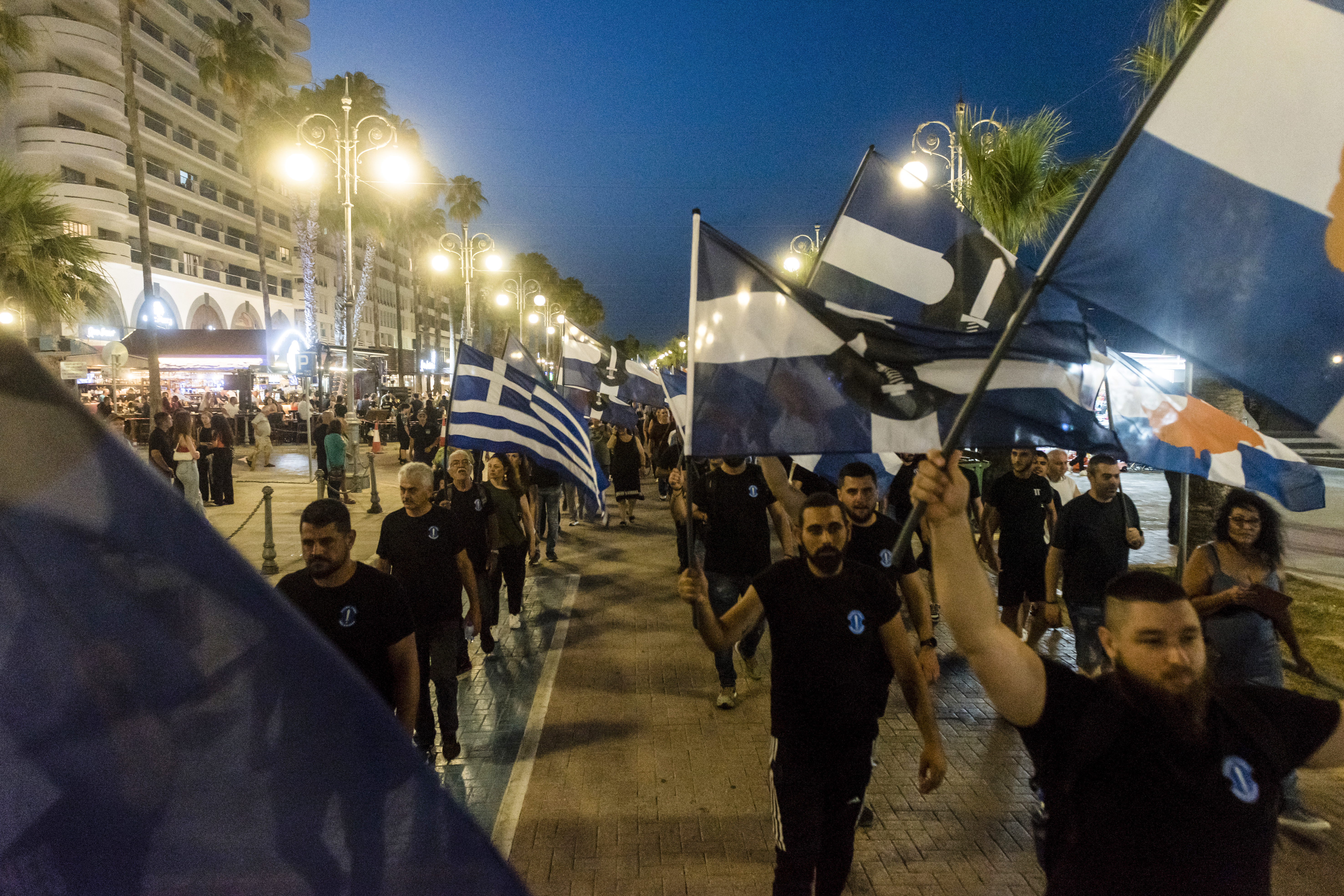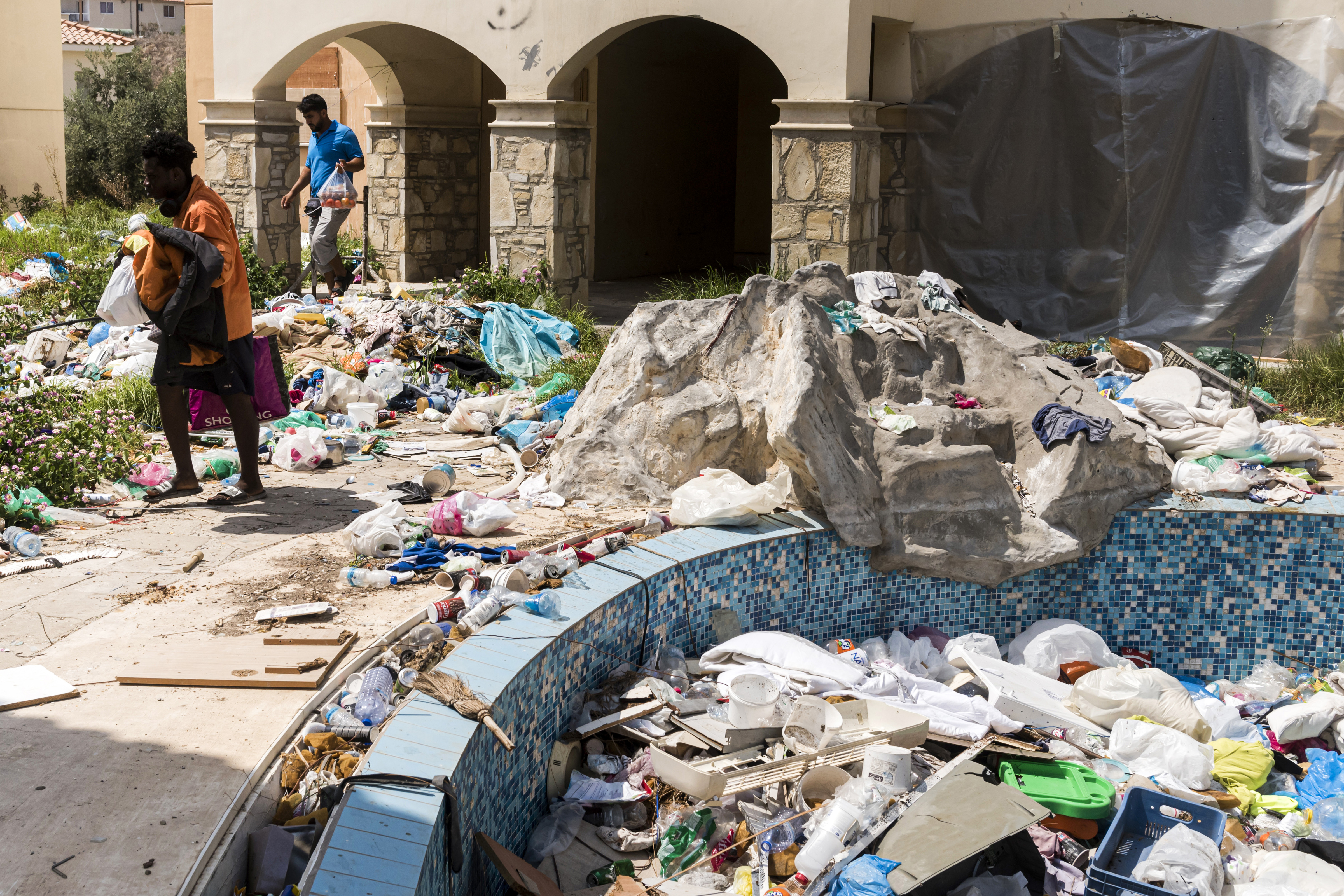
Cyprus police have arrested 20 people after a march against migrants and refugees on the island’s second-largest city, Limassol, turned violent with mobs vandalising property.
Five people were injured during the unrest on Friday evening after about 500 people took to the streets for the march, the police said.
Rubbish bins were set alight and some shops were vandalised, police said. Witnesses quoted by Cypriot media outlets said some foreigners were attacked during the march.
Asian delivery drivers were assaulted and storefronts belonging to migrants were smashed as the violence continued until the early hours of Sunday, according to Reuters news agency.
Police used water cannon to disperse the protesters, some of them hooded and holding a banner that read “Refugees not welcome”.
Overnight Saturday to Sunday, three people from southeast Asia were attacked and robbed, state media said.
Among the victims were a group of visitors from Kuwait, according to social media accounts of witnesses.
Senior diplomat Kyriakos Kouros said a protest was filed by an ambassador of an unnamed Arab state on Saturday after tourists were targeted.
“They cut short their visit. I doubt they will ever return,” Kouros, permanent secretary at the Ministry of Foreign Affairs, wrote on the social media platform X on Sunday, posting a picture of the departure of a group at an airport. One member of the group was in a wheelchair.
“It is the first time I have felt so embarrassed about such an incident in our country,” he wrote. “This isn’t the Cyprus I was born, raised, had a family and am getting old in,” he said.
— Κυριακός Π. Κούρος (@KourosKyriakos) September 3, 2023
Rise in violence
The incident came days after about 20 people were arrested during violent clashes between Cypriots and migrants and refugees near the western resort of Paphos, where authorities have started removing Syrians from a condemned apartment complex.

Video footage on social media showed a group of Greek Cypriots chanting “Get out, get out” during the demonstration. It turned violent, police said, when the Greek Cypriots came face-to-face with a group of Syrians.
The violence continued after about 500 Syrians held a peaceful counterprotest, according to police, who said they used tear gas and water cannon to disperse both sides.
European Union member Cyprus says it is a “front-line country” on the Mediterranean migrant route, struggling to cope with an influx of undocumented migrants and refugees.
The latest EU data shows Cyprus has the highest number of first-time asylum applications relative to population in the 27-member bloc.
Authorities said last week that migrants and refugees comprise an estimated 6 percent of the island’s population. The EU’s average is approximately 1 percent.
Refugee camps in Cyprus are overcrowded. In many places, ghettos have formed where people live in poverty.

‘Embarrassing’ images: Cypriot PM
On Saturday, Cyprus President Nikos Christodoulides held an emergency meeting to discuss the Limassol unrest with the police chief and his justice and interior ministers.
It is the second emergency meeting in a week after Tuesday’s session following the Paphos violence.
“There is not much that can be said other than the embarrassing images we have seen,” a visibly angry Christodoulides told reporters. “They have nothing to do with dealing with immigration.
“If all those involved [in the Limassol incidents] loved or cared about our country, they would not have taken such actions which, above all, insult our country.”
In the last 16 years, 413 racist attacks and incidents have been taken to court in the Greek Cypriot administration, and 125 cases related to these matters are still pending in the courts, according to Cypriot newspaper Politis.
Fewer asylum applications
The number of migrants and refugees applying for asylum in Cyprus dropped by 53 percent over a recent five-month period, according to Ministry of Interior data.

More than 10,600 people applied for asylum from March to July 2022, compared with 4,976 in the same period this year, the figures showed.
But police data shows a rise in the number of migrants and refugees arriving by sea, with more than 500 landing on 45 small fishing boats or inflatable dinghies in the past three months, the vast majority from Syria.







